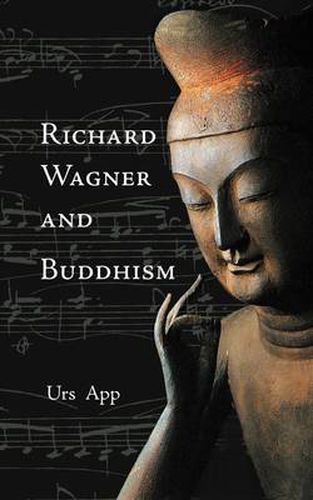Readings Newsletter
Become a Readings Member to make your shopping experience even easier.
Sign in or sign up for free!
You’re not far away from qualifying for FREE standard shipping within Australia
You’ve qualified for FREE standard shipping within Australia
The cart is loading…






This title is printed to order. This book may have been self-published. If so, we cannot guarantee the quality of the content. In the main most books will have gone through the editing process however some may not. We therefore suggest that you be aware of this before ordering this book. If in doubt check either the author or publisher’s details as we are unable to accept any returns unless they are faulty. Please contact us if you have any questions.
It is little known that Richard Wagner was among the very first Westerners to appreciate Buddhism and that he was the first major European artist to be inspired by this religion. In 1856, in the prime of his creativity, the 33-year-old artist read his first book about Buddhism. Madly in love with Mathilde Wesendonck, a beautiful but happily married woman, he conceived two deeply connected opera projects: Tristan und Isolde which he went on to compose and stage, and Die Sieger (The Victors), an opera scenario based on an Indian Buddha legend translated from Sanskrit. These two projects mirrored Wagner’s burning desire for the consummation of his love and the necessity of renunciation. This Buddhist opera project occupied Wagner’s mind for decades until his death in 1883. Indeed, the composer’s last words were about the Buddha figure of his scenario and his relationship with women. Urs App, the author of The Birth of Orientalism (University of Pennsylvania Press) and the world’s foremost authority on the early Western reception of Buddhism, tells the story of Richard Wagner’s creative encounter with Buddhism and explains the composer’s last words.
$9.00 standard shipping within Australia
FREE standard shipping within Australia for orders over $100.00
Express & International shipping calculated at checkout
This title is printed to order. This book may have been self-published. If so, we cannot guarantee the quality of the content. In the main most books will have gone through the editing process however some may not. We therefore suggest that you be aware of this before ordering this book. If in doubt check either the author or publisher’s details as we are unable to accept any returns unless they are faulty. Please contact us if you have any questions.
It is little known that Richard Wagner was among the very first Westerners to appreciate Buddhism and that he was the first major European artist to be inspired by this religion. In 1856, in the prime of his creativity, the 33-year-old artist read his first book about Buddhism. Madly in love with Mathilde Wesendonck, a beautiful but happily married woman, he conceived two deeply connected opera projects: Tristan und Isolde which he went on to compose and stage, and Die Sieger (The Victors), an opera scenario based on an Indian Buddha legend translated from Sanskrit. These two projects mirrored Wagner’s burning desire for the consummation of his love and the necessity of renunciation. This Buddhist opera project occupied Wagner’s mind for decades until his death in 1883. Indeed, the composer’s last words were about the Buddha figure of his scenario and his relationship with women. Urs App, the author of The Birth of Orientalism (University of Pennsylvania Press) and the world’s foremost authority on the early Western reception of Buddhism, tells the story of Richard Wagner’s creative encounter with Buddhism and explains the composer’s last words.